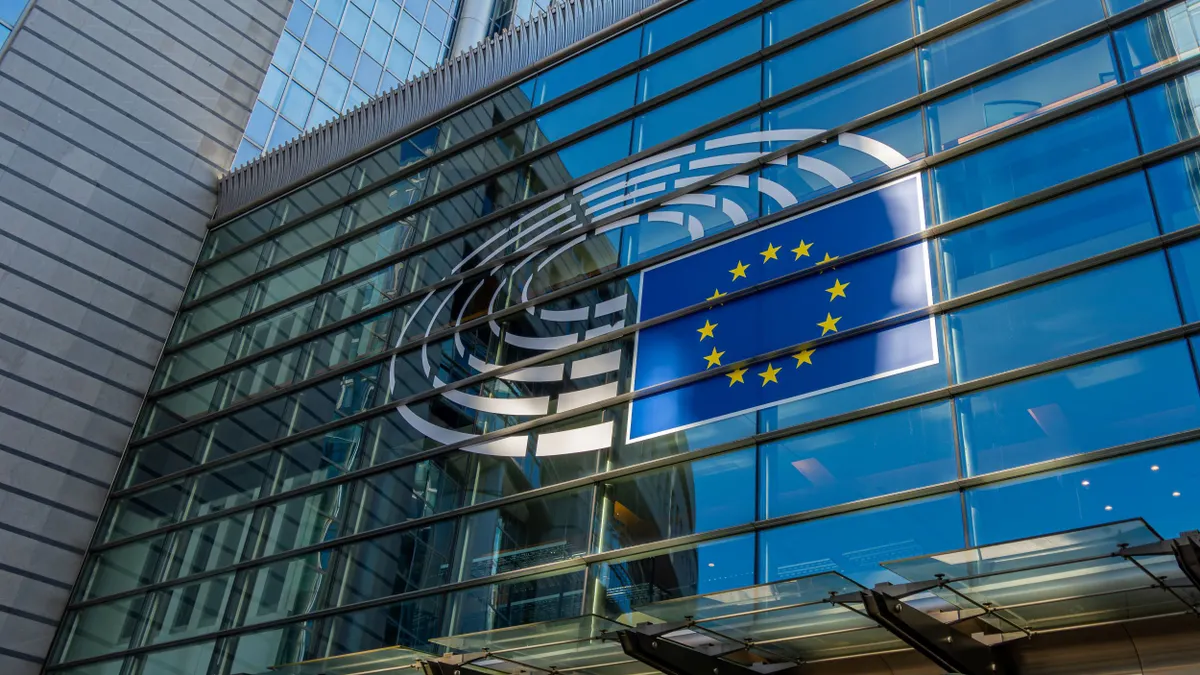Dive Brief:
- The European Commission said Friday that it plans to withdraw a legislative proposal aimed at tackling corporate greenwashing.
- The announcement was made ahead of a planned meeting on Monday to finalize the draft of the legislation. That meeting was cancelled by the EU Council.
- First proposed in 2023, the Green Claims Directive would require companies to submit supporting evidence to national verifiers prior to using environmental claims in marketing.
Dive Insight:
The EU Commission believes the Green Claims Directive goes against the legislative session’s "simplification agenda,” said Paula Pinho, chief spokesperson for the Commission, in a press conference. The agenda also calls for “not adding complexity” to the 30 million microenterprises that would fall under the scope of the law, Pinho said.
“Obviously, the Commission remains fully committed to fight greenwashing and ensure that consumers are correctly informed,” an EU Commission spokesperson said in an email. “The Commission will continue to work on this objective, notably in the context of the implementation of the framework of Empowering the Consumers for the green transition.”
The Commission’s position was well known to both Parliament and the EU Council, Pinho said.
Sandro Gozi, member of European Parliament and co-rapporteur for the measure, said during a separate press conference on Monday that the Green Claims Directive took these legislative priorities into account, specifically the focus on simplification and pushing for fewer burdens on small- and medium-sized businesses and microenterprises.
Gozi added he didn’t understand the withdrawal, because Parliament agrees on the exception for microenterprises.
The European Parliament indicated its willingness to negotiate about any concerns the Commission had with the Green Claims Directive, per the press conference.
Tiemo Wölken, a member of the European Parliament and co-rapporteur of the measure, said during the press conference that the withdrawal was unprecedented and without legal or technical grounds.
The Commission’s move to withdraw could be politically motivated, per Wölken, since the European legislative bodies were close to reaching a compromise on the Green Claims Directive.
“We were derailed by [the] Commission’s choice to play the [European People’s Party]’s political game, together with the far right,” Wölken said.
The center-right EPP has taken a series of actions this year that push for limiting “excessive regulation” in the face of corporate sustainability reporting and due diligence.
However, canceling the negotiations hurts European consumers and companies that are truly sustainable, Wölken said.
“The Green Claims Directive would have protected consumers from products with misleading claims [from] being placed on the market and would’ve protected … real sustainable companies all over Europe from unfair competition,” Wölken said.
Parliament is still assessing the situation, per the press conference. The Council and Parliament now must set the agenda for the next discussion on the proposal.
Editor's note: This story has been updated to include the EU Commission's response.











